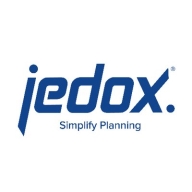

Find out what your peers are saying about Snowflake Computing, Microsoft, Teradata and others in Cloud Data Warehouse.
| Product | Market Share (%) |
|---|---|
| Databricks | 10.4% |
| Snowflake | 15.8% |
| Teradata | 8.0% |
| Other | 65.8% |
| Product | Market Share (%) |
|---|---|
| Jedox | 4.1% |
| Anaplan | 7.1% |
| Board | 5.0% |
| Other | 83.8% |


| Company Size | Count |
|---|---|
| Small Business | 27 |
| Midsize Enterprise | 12 |
| Large Enterprise | 56 |
| Company Size | Count |
|---|---|
| Small Business | 6 |
| Midsize Enterprise | 3 |
| Large Enterprise | 4 |
Databricks offers a scalable, versatile platform that integrates seamlessly with Spark and multiple languages, supporting data engineering, machine learning, and analytics in a unified environment.
Databricks stands out for its scalability, ease of use, and powerful integration with Spark, multiple languages, and leading cloud services like Azure and AWS. It provides tools such as the Notebook for collaboration, Delta Lake for efficient data management, and Unity Catalog for data governance. While enhancing data engineering and machine learning workflows, it faces challenges in visualization and third-party integration, with pricing and user interface navigation being common concerns. Despite needing improvements in connectivity and documentation, it remains popular for tasks like real-time processing and data pipeline management.
What features make Databricks unique?
What benefits can users expect from Databricks?
In the tech industry, Databricks empowers teams to perform comprehensive data analytics, enabling them to conduct extensive ETL operations, run predictive modeling, and prepare data for SparkML. In retail, it supports real-time data processing and batch streaming, aiding in better decision-making. Enterprises across sectors leverage its capabilities for creating secure APIs and managing data lakes effectively.
Integrated Corporate Performance Management software provides reliable data, insights, and guidance to everyone in your company. Jedox delivers it all: Self-service budgeting, planning, and forecasting combined with intuitive analytics and BI dashboards in one integrated software platform. Users across the enterprise in any department from Finance to Sales, HR, and Procurement create integrated plans and reports based on the same data model and business logic. Integrate financial planning and analysis with operational plans and reporting to optimize processes, boost data quality, and slash planning cycles throughout the organization.
We monitor all Cloud Data Warehouse reviews to prevent fraudulent reviews and keep review quality high. We do not post reviews by company employees or direct competitors. We validate each review for authenticity via cross-reference with LinkedIn, and personal follow-up with the reviewer when necessary.